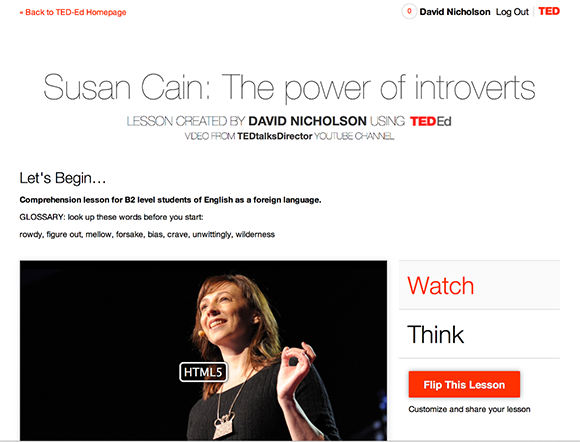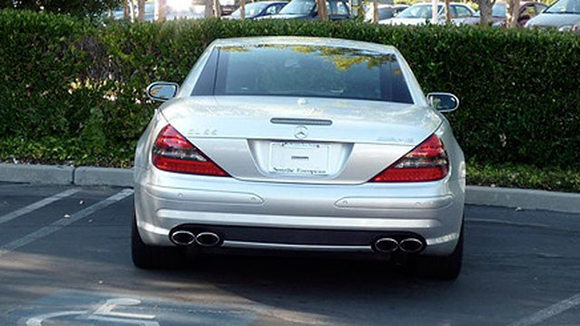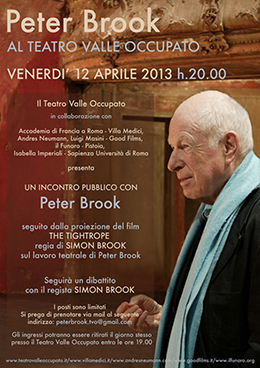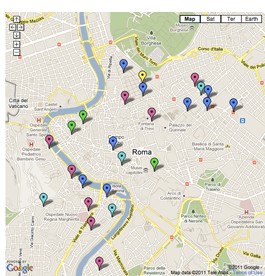Various tenses for looking into the future from the past
The future in the past is used when we want to fast forward from a moment in the past to say what will happen at a later time. It’s usually an explanation inside a narrative.
We use a wide variety of tenses to express the future in the past, and these reflect the various tenses we use for the future when speaking in the present.
Italian uses the composed conditional in equivalent meanings but English avoids this form, so there can be some mistakes that arise from interference.
My first video comprehension lesson on TED-Ed
Last year I wrote about Susan Cain’s brilliant TED talk on empowering introverts.
I have just used the same talk to make my first ‘flipped’ lesson on TED-Ed. A flipped lesson is one that has taken an existing video and used it for a new lesson and TED-Ed is a spin off from TED for specifically for flipped lessons. In this case I just added a glossary and some comprehension questions.
Check it out here and give me some feedback.
Be careful how you use this verb
The verb ‘wish’ is quite different from the corresponding noun. This is because, in many structures, the verb refers to formal, remote or impossible desires.
This presentation separates the various meanings by structure so that the differences are clear. I also go into why we use ‘would’ in seemingly illogical structures like “I wish she’d call”.
Why I think Apple chose this name
A few days ago, Apple previewed its updated operating system, and announced that it’ll be called “Mavericks”, finally departing from the series of big cats that have given their names to the previous 9 versions of OS X. Apple also explained that Mavericks is a Californian beach that’s famous for its surf, and that the new iterations of the OS will all have a Californian theme.
The Apple press have lapped this up, pointing out that the famed beach has already appeared in Apple’s promotional materials, that it’s not far from where one of its directors lives, which other landmarks will be next, and so on.
I think that this is just a smokescreen, an ‘Easter egg’ in computing parlance, hiding an emphatic tribute to Apple’s own Californian landmark, Steve Jobs.
First, consider the meaning of the word. According to the OALD, a maverick is “a person who does not behave or think like everyone else, but who has independent, unusual opinions”. Now consider the text of Apple’s influential ‘think different‘ marketing campaign:
“Here’s to the crazy ones. The misfits. The rebels. The troublemakers. The round pegs in the square holes. The ones who see things differently. They’re not fond of rules. And they have no respect for the status quo. You can quote them, disagree with them, glorify or vilify them. About the only thing you can’t do is ignore them. Because they change things. They push the human race forward. And while some may see them as the crazy ones, we see genius. Because the people who are crazy enough to think they can change the world, are the ones who do.”
‘Maverick’ is notable in this text only by its absence, but who are these people if not mavericks? This is what the Oxford Thesaurus of Synonyms gives for ‘misfit’:
fish out of water, square peg in a round hole, round peg in a square hole; nonconformist, eccentric, maverick, individualist, deviant, exception, outsider; informal oddball, odd fish, weirdo, weirdie, freak; N. Amer. informal screwball, kook.
In other words there’s an incredibly strong connection between the word ‘maverick’ and Apple’s most emblematic and Jobsian advertising campaign.
Secondly consider the interesting origin of ‘maverick’. Like ‘boycott’, ‘wellington’ and ‘sandwich’, it’s an eponym, which means that it derives from someone’s name. Samuel Maverick was, amongst other things, an eccentric Texan rancher. One of his unusual traits was that he didn’t brand his cattle, and the noun ‘maverick’ was first used in 1867 to denote unbranded cattle. Even if it appears that Mr Maverick omitted to brand more out of laziness than independence of spirit, it’s easy to imagine how his cows came to be seen as outsiders, impossible to categorise by normal labels, as they were.
It’s said that the first draft of the ‘think different’ text was written by Jobs himself, and that the final text was very similar to Jobs’ original. Did Jobs see himself as a maverick? Did he see himself as one of crazy ones in the ad? Well, here are a few quotes:
“The minute that you understand that you can poke life and actually something will, you know if you push in, something will pop out the other side, that you can change it, you can mold it. That’s maybe the most important thing. It’s to shake off this erroneous notion that life is there and you’re just gonna live in it, versus embrace it, change it, improve it, make your mark upon it.”
“Your time is limited, so don’t waste it living someone else’s life. Don’t be trapped by dogma – which is living with the results of other people’s thinking. Don’t let the noise of others’ opinions drown out your own inner voice. And most important, have the courage to follow your heart and intuition. They somehow already know what you truly want to become. Everything else is secondary.”
“It’s more fun to be a pirate than to join the navy.”
Of course he was a maverick. So much so that he famously drove a car with no number plates, unbranded, so to speak, just like one of old Samuel’s cows.
Nothing in branding happens by accident and, at the very least, the connection to ‘think different’ will have been carefully scrutinised by their advertising teams. So why didn’t Apple tell us overtly that it was a tribute to their departed founder and mentor? Well, the new version of OS X has some nice new features but it is far from world-changing, it would have been a mistake to associate an incremental update too closely with the rhetoric and image of independent spirit and counter-culture.
And how to translate 'fare'
The choice between ‘make’ and ‘do’, and also other verbs, leads to lots of errors. All languages have words that are over-used but the fact that Italian over-uses the verb fare complicates the choice for Italians learning English.
The idea that some words combine with ‘make’ and others with ‘do’ is a useful introduction to the concept of collocation.




